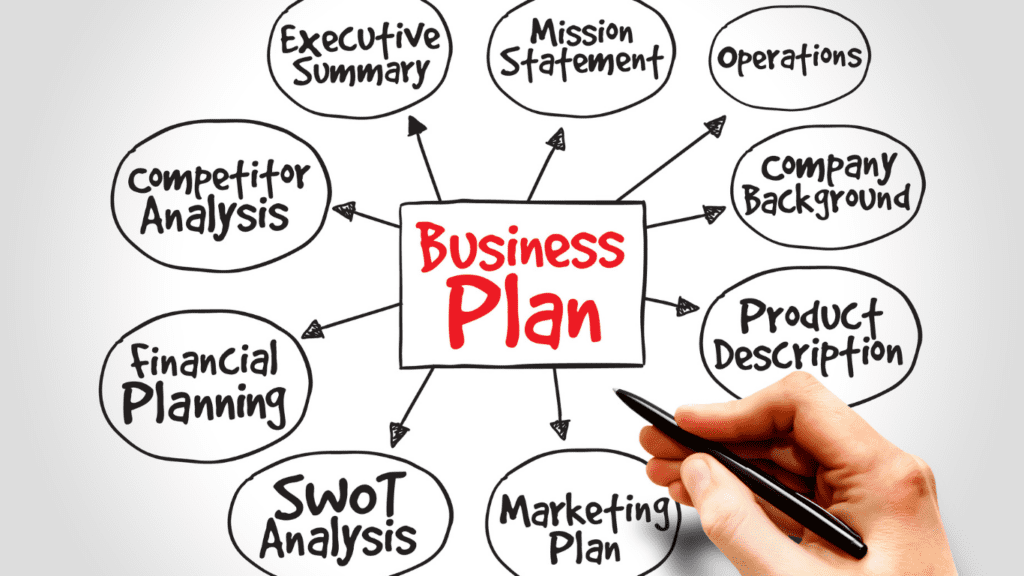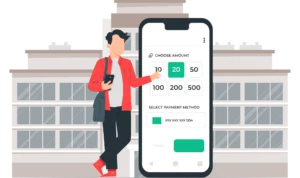Updated: October 30, 2024
Having a business plan for an Airbnb is crucial. Statistics show that businesses with a strategic Airbnb business plan have a 30% higher chance of growth and a 70% chance of surviving for five years. Since there are challenges like not making enough money from rent and legal rules, a smart business plan is necessary to help you navigate tough competition in the rental business and keep you afloat.
What is an Airbnb Business Plan?
If you enter the short-term rental market with Airbnb, you should have this whole plan mapped out. It’s your blueprint for success. It specifically addresses challenges unique to the Airbnb model, such as detailed market analysis, Airbnb pricing strategies, guest experience enhancement, and contingency plans for issues like regulatory compliance.
Since the hospitality world is changing rapidly, the plan might suggest new ideas, like using websites, budget-friendly ways to market your rental, and listening to guests to keep up with the competition.


Why Do You Need an Airbnb Business Plan?
- Setting Up for Long-Term Success: When it comes to running an Airbnb business, aiming for longevity is key. Starting up is tough, but keeping the momentum going for years to come? That’s a whole new challenge.
- Building on a Solid Foundation: Crafting a business plan is like laying down the groundwork for your venture. It gives you a roadmap to follow, helping you navigate the twists and turns as your business grows over time.
- Learning from the Fast-Growing: Why do some businesses skyrocket while others struggle? A whopping 71% of fast-growing businesses credit their success to having a well-thought-out business plan. It’s like having a secret weapon in your arsenal.
- Doubling Down on Profitability: Want to boost your bottom line? Studies show that businesses with solid business plans tend to rake in double the profits compared to those flying by the seat of their pants. It’s all about strategy.
- Taking Action and Launching: Here’s the kicker—entrepreneurs with a business plan are over 2.5 times more likely actually to launch their ventures. Having a plan isn’t just about dreaming; it’s about making things happen.
A business plan isn’t just a formality; it’s your ticket to staying ahead of the curve and building a thriving Airbnb business for the long haul.
Bonus Read: 15 Airbnb Hosting Tips To Make Your Listing Successful
What are the benefits of creating an Airbnb Business Plan?
Crafting a solid Airbnb management business plan offers several perks that can significantly improve your rental’s success.
- Viability Assessment: Examining market trends, competition, and financial projections helps you determine whether your idea is viable.
- Resource Planning: Maps out everything you need, from tech to staffing, ensuring you’re not caught off guard when it’s time to spend.
- Support and Funding: A killer plan speaks volumes when seeking support or funding, showing potential backers that you’ve done your homework and know your stuff.
- Strategic Direction: Provides clear goals and KPIs so you always know where you stand and what needs tweaking.
- Milestone Achievement: This helps you mark milestones, whether it’s hitting revenue targets or expanding your portfolio.
- Adaptability: Gives you the roadmap to navigate twists and turns in markets and trends.
So, in a nutshell, a solid Airbnb management business plan isn’t just a formality—it’s your playbook for success.
Bonus Read: Common Pricing Mistakes Airbnb Owners Should Avoid
10 Key Elements of an Airbnb Rental Business Plan
Here are some of the key elements of an Airbnb plan:


1. Executive Summary
Think of this section as a quick peek into your Airbnb business plan. It gives a short, smart snapshot of what your venture is about. For example, “XYZ Vacation Rentals plans to offer fancy yet affordable stays in cool city spots.” It also discusses important goals, like hitting a certain occupancy percentage by a specific year and being known for awesome guest experiences. This part gives investors and partners a taste of your vision, plans, and where you see success coming in.
Bonus Read: How to Start an Airbnb Business?
2. Business Description
This part gives you the full scoop on how the Airbnb business works. Take “Urban Haven Rentals,” for example. It spills the beans on what makes it special – offering chic, fully loaded apartments tailored for busy business travelers. Who’s the main audience? Tech-savvy pros aged 25-45 craving modern vibes and easy booking. What sets it apart? Exclusive partnerships for cool local experiences, making it stand out from the crowd.
3. Market Analysis
This section arms the business with smarts about what’s hot in the market. It explores the short-term rental industry. For example, it might highlight the growing craving for unique, experience-packed stays. It dives into trends, like the buzz around eco-friendly getaways. And guess what? Deep analysis of competitors, checking out their prices and perks.
Bonus Read: How Vacation Rental Owners are using Market Dashboards?
4. Customer Analysis
This part is all about getting into the minds of travelers and what makes them tick. Armed with this inside scoop, the business can offer services that hit the spot for all kinds of guests. For example, some people could be after one-of-a-kind cultural vibes. Others might be looking for wallet-friendly stays for longer stays. Ever wonder why some people book at the last minute? To answer that, you’ve got to uncover their booking patterns.
5. SWOT Analysis
An Airbnb SWOT Analysis looks at its strengths (like a large network), weaknesses (such as regulatory uncertainties), opportunities (like the rise in remote work), and threats (competition or economic downturns). This helps make smart decisions, capitalize on strengths, fix weaknesses, grab opportunities, and handle threats.


6. Marketing Strategy
In this section, branding might mean creating a unique identity, such as “Serene Stays – Where Comfort Meets Adventure.” This involves using targeted marketing channels like social media for online exposure and collaborating with local tourism offices for offline outreach.
A dynamic pricing strategy, offering discounts in off-peak seasons and promotions like ‘Stay 3 Nights, Get 1 Free,’ can attract guests. Customer acquisition may include referral programs, while personalized post-stay communication ensures retention.
7. Operations Plan
This section outlines key aspects like property management, maintenance, booking systems, and customer service protocols for smooth functioning. The plan aims to uphold high property standards, optimize occupancy through efficient reservations, and ensure guest satisfaction through effective communication.
Partnerships and collaborations are also considered to enhance the overall guest experience. This comprehensive approach creates a well-organized and efficient framework.
8. Financial Plan
In this section, you get the financial lowdown. First up, it spills the beans on the start-up costs and initial investments. Then, it comes to revenue predictions and profit margins, so you know what to expect in your pocket. Ever heard of a break-even analysis? It’s like the finish line – when the money coming in equals the money going out. Plus, there are financial goals to hit along the way. And just in case things get challenging, there’s a backup plan ready.
Bonus Read: A Complete Guide to Vacation Rental Investment
9. Legal and Regulatory Considerations
This section focuses on ensuring compliance and mitigating risks. Consider local rental laws, such as getting the permits the city wants and sticking to zoning rules, making agreements with hosts and guests with clear rental terms and cancellation policies to keep everyone safe, insurance covering property hiccups and accidents, and security deposits.
10. Team and Management
This section shows stakeholders that the team is ready to tackle anything. Think of it as the blueprint for the people side of things. It lays out who’s who in the team and what they do, making sure everyone knows their job. Have you ever heard of a roadmap for hiring and training? It’s like ensuring the team has all the tools they need to work effectively on it.
Wondering what an actual Airbnb business plan looks like? Well, here are a few Airbnb Business plan example that might help you out:
Key Takeaways
An effective Airbnb business model integrates key elements: executive summary, business description, market and customer analyses, SWOT analysis, marketing strategy, operations plan, financial plan, legal considerations, and team management. Here are some bonus tips before we sign off:
- Tailor your plan to focus on guest satisfaction. Think about what guests love, from unique experiences to seamless check-ins.
- Be flexible to adapt to new trends, technologies, and customer preferences.
- Consider seeking professional assistance for your Airbnb business plan. Experts bring better experience, thorough market insight, and strategic guidance.
Put these strategies to work, catch the market trends, and see your short-term rental business run smoothly.
About PriceLabs
PriceLabs is a revenue management solution for the short-term rental and hospitality industry, founded in 2014 and headquartered in Chicago, IL. Our platform helps individual hosts and hospitality professionals optimize their pricing and revenue management, adapting to changing market trends and occupancy levels.
With dynamic pricing, automation rules, and customizations, we manage pricing and minimum-stay restrictions for any portfolio size. Prices are automatically uploaded to preferred channels such as Airbnb, Vrbo, and 100+ property management and channel integrations.
Every day, we price over 300,000+ listings globally across 135+ countries, offering world-class tools like the Base Price Help and Minimum Stay Recommendation Engine. Choose PriceLabs to increase revenue and streamline pricing and revenue management. Sign up for a free trial at pricelabs.co today.









